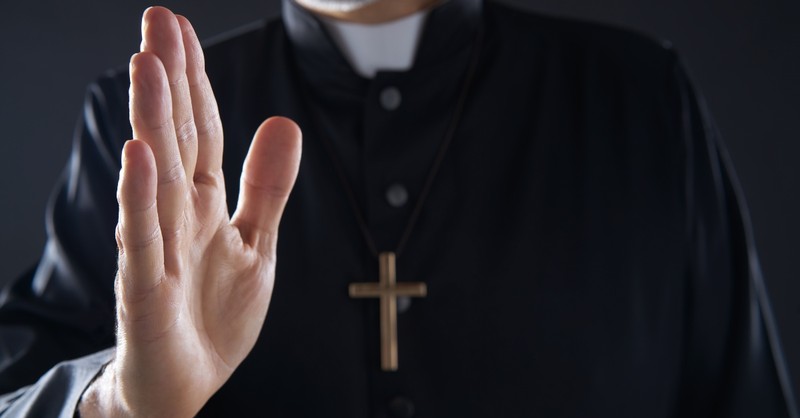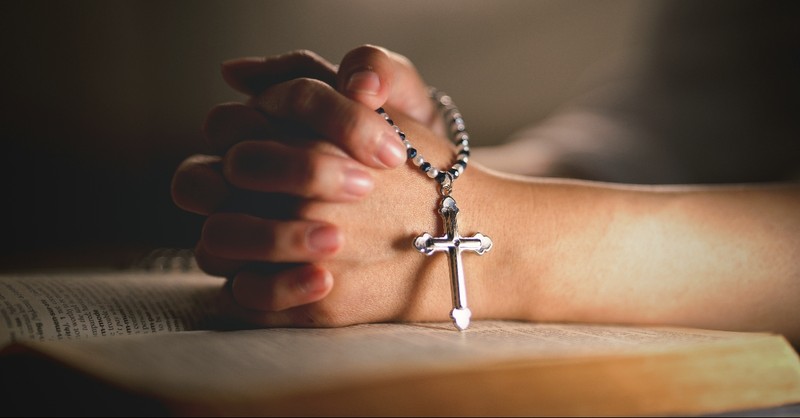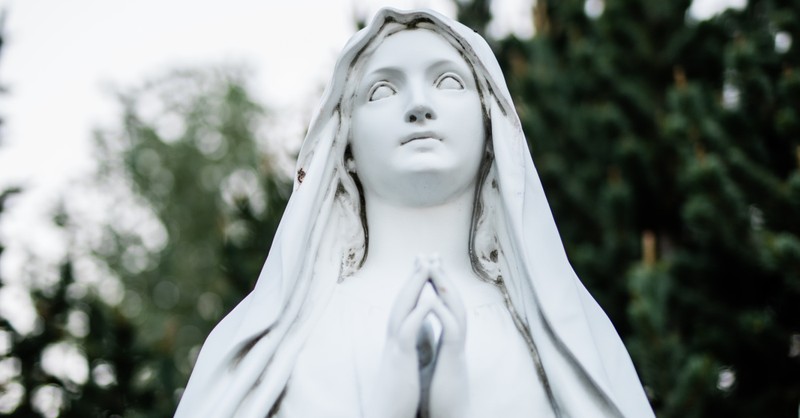Carlo Acutis will become the first saint from the Millennial generation in April of 2025. Known as “God’s influencer,” the London-born teenager passed away at 15 from leukemia in 2006. Carlo got his nickname by using his tech skills to promote the Catholic faith, including a website highlighting miracles. He spent most of his childhood in Italy.
The Catholic Church recognized Carlo’s first miracle in 2020, the healing of a Brazilian child with a congenital disease. His second miracle, confirmed in 2024, involved the recovery of an Italian student with a brain injury. These two miracles, combined with Carlo’s influence, led to Pope Francis’ announcement to canonize the young man in late April next year.
His body moved to Assisi after his death and stays on display alongside other relics, and his upcoming sainthood shows how even a young person can have a great impact through modern means.
For Christians, this also leads to an interesting discussion of the history and legacy of sainthood and what the Bible says about what it means to be a saint.
Photo Credit: ©GettyImages/Takako Watanabe

What is Catholic Sainthood?
In Catholic sainthood, the Church officially recognizes people who lived lives of exceptional holiness, individuals who served as models for all believers. The process of canonization affirms these people and often places them as heavenly intercessors for Catholics to pray to.
Honoring saints began in the early church when believers would celebrate those who died for their faith. By the 900s, the Catholic organization made the process more consistent. Pope John XV performed the first canonization of sainthood with St. Ulrich of Augsburg in 933 AD. Over time, sainthood became more structured and included evidence of virtues and confirmed miracles.
Over time, the Catholic Church has officially recognized over 10,000 saints. These include apostles, martyrs, mystics, scholars, and everyday people who lived with faith and dedication to God. The exact number of saints remains vague, but the Catholic Church continues to evaluate saints through their process of investigation for miracles and proper holy living.
Catholics believe these saints in heaven can present prayers to God on their behalf. They root this practice in the “communion of saints,” which unites believers on earth with those in heaven. Catholics view this much like asking a friend to pray for specific needs, especially one they might believe has a deep relationship with God. For example, a prayer to St. Anthony might seek help finding lost items, while praying to St. Therese might request an overcoming faith. Through this, Catholics believe the saints join them in approaching God’s grace and mercy.
All Saints’ Day, celebrated on November 1, honors all the Catholic saints who have attained eternal glory in heaven. The tradition began early, in the 300s, to commemorate martyrs but expanded over time to include the official church saints. Pope Boniface IV consecrated the Pantheon in Rome to honor all saints, and Pope Gregory IV set November 1st as the day for the feast day.
Photo Credit: ©Getty Images/LUNAMARINA

What Makes a Saint in the Catholic Church?
In the early Church, saints were proclaimed by popular acclaim, especially martyrs. By the 10th century, the authority to canonize became centralized under the Pope. Pope John XV conducted the first official canonization in 993 AD. The process was further formalized in 1588 with the establishment of the Sacred Congregation of Rites by Pope Sixtus V. Significant reforms occurred in 1983 under Pope John Paul II, streamlining procedures and emphasizing thorough investigations. Today, it includes the following four steps.
First, sainthood begins at the diocesan level (the diocese is a local area overseen by a bishop). Five years after a person’s death, a bishop can start an investigation into a person’s life. If counted as worthy, the Church gives the person the title of “Servant of God.” Second, the Bishop forwards the information gathered in the investigation to the official Dicastery for the Cause of Saints in Rome. Theologians and cardinals examine this evidence. If they find the person has lived a life of “heroic virtue,” the Pope himself declares him “Venerable,” as in someone to be revered. The potential saint must show virtues of faith, hope, and charity, along with prudence, justice, perseverance, and temperance, all to an exceptional or heroic degree.
Third, for non-martyrs, there must be one officially verified miracle performed by the person. Upon this confirmation, the Pope “beautifies” the person, granting them a further title, “Blessed.” Martyrs, those who have been persecuted and killed for their faith, can be beautified without a miracle. Fourth, a second verified miracle is generally required for final canonization. Once the Church makes the second miracle official, the Pope canonizes the person, which makes them a saint.
On October 20, 2024, Pope Francis canonized 14 new saints. These included St. Guiseppe Allamano, founder of the Consolata Missionaries, and 11 martyrs from Syria.
Photo Credit: ©iStock/Getty Images Plus/Mongkolchon Akesin

10 Famous Saints
Out of 10,000 or more saints, a few have become popular for different reasons.
1. Saint Mary
St. Mary, the Blessed Virgin, is the most venerated saint. Known for the immaculate conception and being the mother of Jesus, she teaches purity, obedience, and motherly love. Catholics honor her as the Queen of Heaven and possibly the most powerful intercessor.
2. Saint Joseph
Jesus’ earthly father, St. Joseph, is revered for his humility and dedication to follow God. Catholics count him as the patron saint of workers and families.
3. Saint Francis
Born in 1811, St. Francis founded the immensely popular and influential Franciscan Order. Known for his love of nature and the poor, he embraced a life of poverty and humility.
4. Saint Anthony
Known as the patron saint of lost items, St. Anthony was a Franciscan friar and talented speaker. His amazing knowledge of Scripture and heart of compassion makes him a loved Church figure.
5. Saint Terese
Called “The Little Flower,” St. Therese of Lisieux taught love and trust in God through her “Little Way” of simple, daily acts of faith. Despite dying young, her autobiography, Story of a Soul, still inspires church members.
6. Saint John Paul II
One of the most popular and beloved popes, John Paul II, helped to end communism in Eastern Europe in the 20th century. He’s known for his faith, love for young people, and his devotion to Mary.
7. Saint Theresa of Calcutta
St. Theresa of Calcutta founded the Missionaries for Charity in India, and she’s famous for her work among the poor and dying. Her service to the marginalized and her message of love and dignity gained her global admiration, even winning a Nobel Peace Prize. She rejected the traditional feast and asked for the monetary prize to be given to the poor in Calcutta.
8. Saint Peter
St. Peter served as a foundational apostle in the church in Acts, and Catholics count him as the first pope. He had his flaws, but with the Holy Spirit, he became a model of faith and perseverance.
9. Saint Paul
Once a persecutor of Christians, Jesus revealed himself to St. Paul, and Paul later planted several churches among the Gentiles. His letters form a major part of the New Testament content and thought.
10. Saint Augustine
Finally, St. Augustine was a highly intelligent philosopher and theologian. His writings (like Confessions and The City of God) still influence thought among Christians of all denominations. His life revealed the power of God’s grace to transform a life.
Photo Credit: Grant Whitty/Unsplash

What Should Christians Know about the New Series “The Saints”?
Catholic saints still draw attention and interest. On November 17, 2024, an eight-part docudrama series called “Martin Scorsese Presents: The Saints” premiered. Acclaimed director and filmmaker Martin Scorsese hosts and narrates the series, which covers eight popular saints like Joan of Arc, John the Baptist, and Francis of Assisi. Each episode combines scholarly discussions and dramatic reenactments.
The series will provide historical context and exploration of these saints. However, it won’t be simply academic. The dramatizations will make their stories more compelling and accessible to a broader audience. Discussing these saints can point people to God and faith in new and interesting ways.
However, as with any type of dramatization or documentary, the show might take creative liberties or write from a biased perspective. For those interested, we should watch with biblical discernment. As a negative, access to the show requires a subscription fee to Fox Nation, which many people might not be willing to do.
Photo Credit: ©Getty Images/Robert Daly

What Does the Bible Say about Saints?
The Bible uses the term “saints” extensively, yet the Scripture doesn’t speak about them as the Catholics do. In the Old Testament, the Hebrew word often translated as “saints” is qedoshim, meaning “holy ones,” and it mostly refers to angels like the “holy ones” surrounding God’s throne (Psalm 89:5-7).
The book of Daniel becomes the first time “saints” refers to God’s faithful people. Daniel 7:18 says,
“But the saints of the Most High shall receive the kingdom and possess the kingdom forever, forever and ever.”
Here, the saints are God’s people, set apart to inherit heaven. In the New Testament, the term “saint” (hagios in Greek) almost exclusively means all Christians, not special or rare ones. Paul addresses believers as saints in his letters. “To all those in Rome who are loved by God and called to be saints.” (Romans 1:7) The New Testament teaches every believer is made holy through faith in Christ and called to live a holy life (1 Corinthians 1:2).
The Bible does recognize specific leaders as anointed by God for unique roles, such as apostles and elders. However, these leaders didn’t elevate themselves above others. For example, Paul referred to himself as a “fellow saint” and servant of Christ. In Ephesians 3:8, he writes, “Though I am the very least of all the saints, this grace was given, to preach to the Gentiles the unsearchable riches of Christ.”
In fact, the New Testament teaches the “priesthood of all believers.”
“But you are a chosen people, a royal priesthood, a holy nation, God’s special possession.” - 1 Peter 2:9
This shows how all Christians have direct access to God. The Bible explicitly teaches only one mediator exists between God and humanity, Jesus Christ. 1 Timothy 2:5 states,
“For there is one God and one mediator between God and mankind, the man Christ Jesus.”
Nowhere in the New Testament are we told to pray to any other heavenly person. Yes, we are to pray for each other as fellow priests, but the Bible consistently points us to approach God directly through Christ by the Spirit.
Photo Credit: Ben White/Unsplash

Are All Christians Saints?
What a radical change took place from the Old to the New Testament and Covenant. We become a “holy one,” a saint, by being born again through the Holy Spirit, where God makes us partakers of his divine nature. Jesus explained to Nicodemus in John 3:5-6,
“Truly, truly, I say to you, unless one is born of water and the Spirit, he cannot enter the Kingdom of God.”
When we’re reborn, we become new creations in Christ.
“Therefore, if anyone is in Christ, he is a new creation. The old has passed away; behold, the new has come.” - 2 Corinthians 5:21
Through this complete transformation, God makes us holy by imparting to us his righteousness (2 Corinthians 5:21). His divine nature empowers us to follow the Father and prepare us for our eternal destiny. Along with enabling us to live holy lives on earth, we become reborn for our heavenly inheritance. Romans 8:17 says,
“And if children, then heirs—heirs of God and fellow heirs with Christ, provided we suffer with him in order that we may be glorified with him.”
As heirs of the Father, he prepares us through discipleship and sanctification to reign in his perfect Kingdom forever (Revelation 22). With the Holy Spirit’s power, we all have within us the power to live heroic faith and do miracles. Our divine transformation enables us to spread the Good News of peace, hope, and love in this broken and dark world. Jesus calls us the “light of the world” (Matthew 5:14) and commands us to act in a way that others see our good works and glorify the Father (Matthew 5:16). With the Spirit’s power, and in these ways, we can influence the faith of the next generation through godly character and teaching biblical truth.
This doesn’t deny how God has used anyone, including Catholic heroes. However, biblical sainthood isn’t reserved for a specific group or denomination but is available for all believers through faith in Jesus Christ. Whether Catholic, Protestant, or others, we all have been born again to live as God’s holy ones, spreading love and pointing to his Kingdom.
Photo Credit: ©Getty Images/Kobus Louw






.jpg)